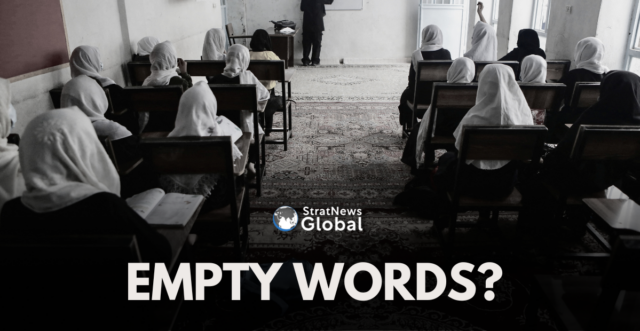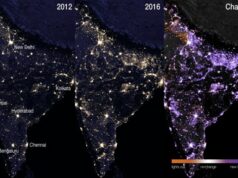Yet another UN statement denouncing the atrocities by the Taliban against women in Afghanistan in December exposes the impotency and hypocrisy of the world body.
The December 13 statement, signed by America, Britain, France, Japan, Republic of Korea, Switzerland, Denmark, Greece, Ecuador, Guyana, Malta, Sierra Leone, Slovenia and Panama, expressed deep concern over the ruling Taliban’s discriminatory policies and practices that restrict women and girls’ access to education, employment, and public life, describing it as gender apartheid.
But it is important to remember that it was the U.S., after routing the Taliban in 2001 and ‘ruling’ Afghanistan for 20 years, decided to hand it back to the same Islamist outfit on a plate, sidelining democratic efforts in their hurry to leave the country in August 2021.
In the three years since then, Afghan women, particularly in Kabul, who had tasted some form of freedom during the American rule, were quickly taken back to a dark medieval era by the Taliban.
First, the Taliban declared a ban on co-education and prohibited men from teaching women students in Afghanistan. Then, it banned girls from receiving secondary education. The atrocities on women have gotten worse with time. From having to cover their faces in classrooms in universities to banning sectors such as agriculture, mining, civil engineering, veterinary medicine and journalism for women, the Taliban has done it all.
More recently they have also begun widespread detention of women and girls on accusations that they were not wearing “proper hijab,” as per a report by Human Rights Watch.
While most countries, including India, do not formally recognise the Taliban government, they seem to be inching closer to boosting their ties with it, even as they continue to denounce the violations of human and women rights in the country.
Recently, New Delhi approved the appointment of a Taliban representative as acting consul at Afghanistan’s Consulate in Mumbai. This is the first appointment by the Taliban in India since it took power, while India continues to insist it will not recognise the Taliban without consulting other world powers.
Earlier this week, the Russian parliament voted in favour of a law that would make it possible to remove the Taliban from Moscow’s list of banned terrorist organisations.
This clear step towards recognising the Taliban as a legitimate government of the state of Afghanistan raises some serious questions about women’s rights in a world where several conflicts have already underlined their vulnerability.
The international response which appears to reflect in meaningless statements about denying formal recognition to the Taliban while ‘staying engaged’ with the hardline Islamist outfit creates the impression that women’s rights are not much of a concern to world leaders.
The fact that three major world powers, Russia, India and China, did not sign the latest U.N. statement is proof that these statements are nothing more than empty words.
What will take for politicians to act on the clear message delivered by the Special Representatives and Envoys on Afghanistan during the Doha talks that human rights and gender equality in Afghanistan are not negotiable?
How many more women and young girls must suffer before the world decides to act against this blatant violation of basic human rights?





